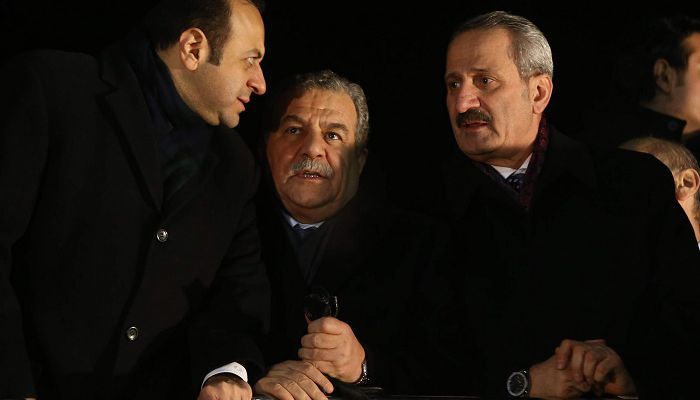An opposition lawmaker and former MP from the ruling Justice and Development Party (AKP) has claimed that President Recep Tayyip Erdoğan prevented the prosecution of three former ministers implicated in a bribery and corruption scandal that had shaken the Turkish government in 2013.
A 14-member parliamentary committee that included nine lawmakers from the ruling AKP and five from the opposition decided against the trial of four ministers in total, including former economy minister Zafer Çağlayan, former interior minister Muammer Güler and former EU Affairs minister Egemen Bağış, by a majority vote back in 2015.
Selçuk Özdağ, the deputy group chair of the Future Party (GP), told Sözcü TV over the weekend that Erdoğan stepped in to prevent the prosecution of the ministers after they threatened to “reveal those above them” if they were sent to the Supreme State Council.
Turkey’s Constitutional Court also functions as the Supreme State Council to hear cases brought against the country’s highest officials for crimes related to their official duties.
Özdağ said Erdoğan, who was prime minister when the scandal broke and was elected president in August 2014, invited the chairman of the parliamentary committee to his office later in 2014 and secured a rejection decision from the committee.
He said parliament’s general assembly also later voted against the trial of the ministers.
“In this way, these individuals were not referred to the Supreme State Council,” Özdağ added.
According to Özdağ, the president’s decision, which conflicted with the expectation of some MPs — including his own — to take Güler, Bağış and Çağlayan to court, came after the ministers threatened to “reveal those above them,” suggesting they would reveal the connection of their actions to Erdoğan if they were put on trial.
The December 17-25 bribery and corruption investigations shook the country back in 2013. The probe implicated, among others, the family members of four cabinet ministers as well as the children of then-prime minister and current president Erdoğan.
As part of the first investigation, the sons of three then-ministers from the ruling AKP were detained on December 17, 2013.
A week later another investigation reached Erdoğan’s son Bilal Erdoğan.
The December 17-25 investigations led to the resignation of four Cabinet ministers, to which Erdoğan responded by claiming that the corruption scandal was fabricated by sympathizers of the Gülen movement, inspired by the views of the late Islamic cleric Fethullah Gülen, within the police department with the aim of overthrowing his government.
At the time more than 700 police chiefs and dozens of prosecutors were dismissed or reassigned. Many faced criminal charges of attempting to overthrow the government and membership in a terrorist organization.
A similar allegation was also voiced by Ertuğrul Günay, former culture and tourism minister for the AKP government, back in 2021.
Günay said the parliamentary committee members were largely inclined to send the ministers’ cases to the Supreme State Council to have them tried before Erdoğan made a phone call to the head of the committee.
Günay’s claim came as discussions regarding the December 17-25 bribery and corruption investigations were rekindled in 2021 after Erdoğan Bayraktar, one of the four ministers implicated in the probes and the former Turkish minister of environment and urban planning, confirmed the validity of charges against him in connection with the graft scandal, saying evidence against him was genuine and not doctored as alleged by the ruling AKP.
Bayraktar’s revelations came as a blow to Erdoğan’s claim that the corruption scandal was fabricated by sympathizers of the Gülen movement within the police department with the aim of overthrowing his government.
The Gülen movement strongly denies any involvement in the corruption probes.

